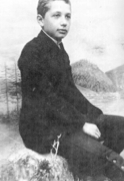‘World Language’ is a method developed by Laura Groebbé (2007) to help children and teenagers to map their learning and thinking experience in a constructive way.
World language is based on the theory developed by Robert Sternberg (1996) how to be ‘successful intelligent’: create a solid balance between intellectual, creative and practical intelligence. World Language also taps into Dabrowski’s Theory of Positive Disintegration (1970).
[h4]Multi Applicable Method[/h4]World Language is an internal and external communication method that is multi applicable, it can be used in the classroom, in smaller groups, within families and in coaching.

[h4]Constructive Communication[/h4]World Language makes children aware when they use their intellectual, creative or practical intelligence and they learn to evaluate if their choice and behaviour was the most conducive choice and the practice adds towards the balance between intellectual, creative and practical intelligence.
World language provides a way of communication for children that makes them aware of their different ways of approaching challenges and gives the children and teenagers grip on their intellectual, creative and practical development.
World Language helps children and teenagers to communicate constructively with themselves and with others.
[h4]No Language Needed[/h4]One of the strong points of world language is that children who are not yet capable of expressing themselves in English are capable to communicate through this method constructively with others, which can be an advantage for children whose first language isn’t English. ‘World Language’ permits them to communicate internal processes in an easy and understandable manner from a young age on and teaches them to be self directed in problem solving.
[h4]World Language Tools[/h4]If you are interested to learn more about this method you can fill in the contact form below to get into contact with Simone de Hoogh who is a qualified teacher trainer for ‘World Language’.
[button text=”Find out if your child or teenager is overexcitable as well” link=”http://www.powerwood.org.uk/children-with-overexcitabilities/overexcitabilities-form/” color=”orange”]
[h2]Free talk with a professional[/h2]
If you like you can contact us to discuss the results of the Overexcitability Questionnaire or learn more with a Free Introductory Talk with an experienced professional.
[contact-form to=’simone@powerwood.org.uk’ subject=’I would like to book a Free Introductory Talk’][contact-field label=’Email Address’ type=’text’ required=’1’/][contact-field label=’You will be contacted by email to make an appointment by phone or Skype. If there is any particular subject you would like to talk about please let us know:’ type=’textarea’/][/contact-form]
[button text=”See what event you can join” link=”http://www.powerwood.org.uk/events-calendar/” color=”orange”]
